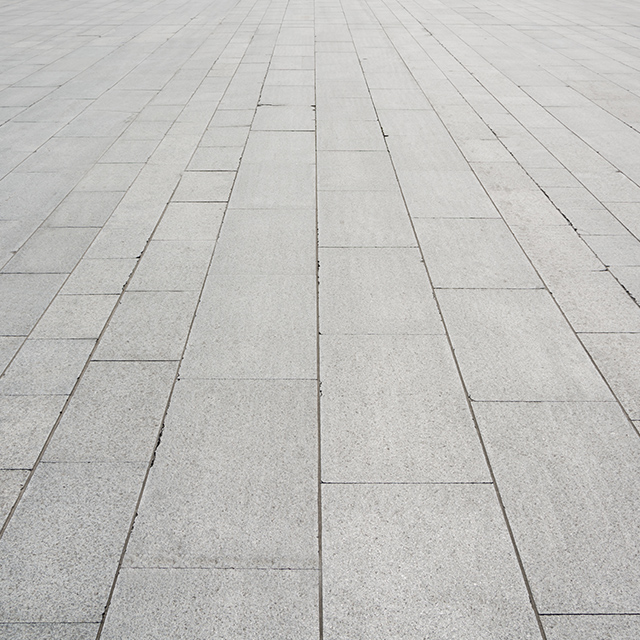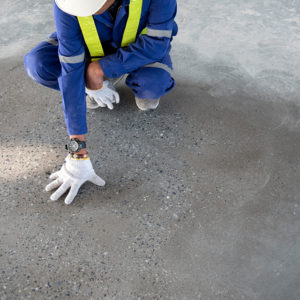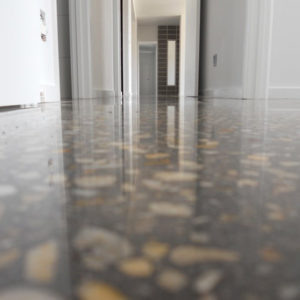Concrete Floors: Are They Hard on Your Feet?

How to Deal With Common Concrete Sealer Problems
February 24, 2021
Constant comfort with honed concrete
April 19, 2021Concrete floors are becoming increasingly popular in many Australian households thanks to their durability and ease of maintenance. Add in the fact that concrete flooring gives a clean and aesthetic look, and you’re looking at a flooring solution that will look perfect on any modern home. But one of the biggest knocks against concrete floors is that they can feel hard on your feet.
Of course, all of us would love to have home floors that feel comfortable underfoot. In this article, we’ll be answering the question of whether or not concrete floors are hard on your feet so that you can make an informed decision.
How hard is concrete as a flooring surface?
You may have encountered “lightweight” concrete in many home improvement stores. This may lead you to believe that this type of concrete will feel softer than traditional concrete, but that isn’t necessarily the care. Regardless of which bag it comes from, concrete is going to be a very hard and durable surface.
Flooring options like hardwood or carpet will provide a bit of give as you walk, thus cushioning the impact on your heels and joints. Unfortunately, there’s no going around the concrete as being a hard flooring surface. What concrete lacks in cushioning, it more than makes up for in sheer durability. Concrete can hold up against heavy loads and is very resistant to cracking (provided that the concrete floor was installed professionally).
Concrete is well-known for its ability to stand up against heavy foot traffic. Unlike other flooring options where they tend to wear out, concrete rarely shows any signs of wear and tear. The hardness of the material is what gives it incredible strength, meaning you can use concrete floors on virtually every part of your home.
Is concrete loud?
One of the most common questions regarding concrete floors is whether they’re loud when stepped on. After all, the flooring has zero give which can cause the walking sounds to echo and bounce off the walls.
Almost any hard flooring surface will create a bit of noise when stepped on. This includes tiles, hardwood, and marble. But that doesn’t mean you should shy away from using concrete floors as there are plenty of ways to mitigate the sound. You can muffle the echoing by using wall fabrics, rugs, curtains, and similar materials that absorb sound.
Because of its large mass, concrete flooring does give a bit of sound isolation from vibrations that enter or leave a room. This means that concrete floors aren’t as noisy compared to other hard flooring surfaces.
Are concrete floors slippery?
Contrary to popular belief, concrete floors aren’t as slippery as you think. This is because professional installers apply a slip-resistant coating to improve foot traction and reduce slip hazards. The coating is usually made of a gritty material to enhance the friction coefficient. You’ll often see concrete floors on poolsides, patios, and even driveways because their slip-resistant characteristics make them ideal for almost any area of your home.
How can I make concrete floors more comfortable?
Just like how you can improve the sound dampening of concrete floors, you can also improve its comfortability. People with achy joints and knee pain may want to consider the following steps to make concrete flooring more comfortable.
The first step is to wear indoor slippers. Indoor slippers act as a cushion between your feet and the concrete surface. The slippers absorb most of the impact while walking and reduce noise and other vibrations as well. Another way to create some cushion for your feet and joints is to install rugs and mats.
For those that spend a long time in the kitchen, using a memory foam rug will go a long way towards reducing joint pain. You want to use an area rug in places like the living room so that the material can cushion your feet as you walk around.
Why should I choose concrete floors?
There are plenty of benefits to using concrete floors in your home. If you’re still undecided, here are a couple of advantages to concrete flooring that you may not be aware of:
- Ease of maintenance
When used for flooring, concrete requires very minimal upkeep. Depending on the foot traffic, you can expect your concrete floors to last for years provided that it’s resealed once or twice every two years.
- Flexibility of design options
One of the biggest appeals of concrete flooring is its wide array of design choices. You can experiment with different patterns, colours, and finishes to achieve a look that will match your home’s design. Dyes and staining agents can add a bit of character to your home’s flooring. By working with a professional concrete installer, your design options are endless.
- Affordability
Concrete floors are very affordable compared to other flooring options out there. What separates concrete from hardwood or tiles is that you’re paying less money, but you’re not sacrificing durability or quality.






